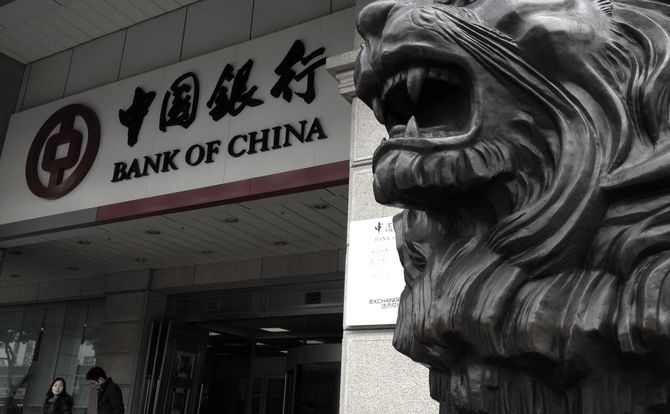Ready for the next recession?
Economists enjoy delivering bad news. The current favorite being shared by academics and financial experts is that the world is headed for a recession, in 2020 or 2021 at the latest. But we regard this as unlikely, unless there is a major political accident – such as a trade war or turmoil in China.

In a nutshell
- The U.S. is on a solid growth path, but China and the EU face political risks
- Europe’s regulatory and fiscal burden is unlikely to cause a global recession
- The main risk is political turmoil in China if Beijing mismanages its banking system
When the world economy is faring reasonably well (the current global growth rate is above 3.5 percent), economists tend to concentrate on the bad news and hurry to predict the timing of the next recession. The first half of 2018 has been no exception. In May, about 80 percent of the economists surveyed by The Wall Street Journal predicted that the world economy will be in trouble by 2020 or 2021. The next crisis would probably be the result of higher interest rates, bearish equity investors, and possibly trade wars, the pessimists said. Is it time to run for cover before the next downturn?
Let us consider a few basic facts. The United States, China and the European Union are the main drivers of the world economy. Each features a different growth pattern. U.S. economic growth is outpacing productivity gains, but remains significantly slower than technological advances would allow.
China is growing at the rate one would expect, given its potential, its relentless efforts to promote technological advances, and its commitment to educating millions of ambitious and hardworking young people. Yet, its failure to introduce real competition to domestic industries and systematic political interference could bring its economic success story to a sudden stop.
Europe is doing reasonably well on aggregate (its current annual growth rate is about 2.5 percent). Like the U.S., however, it has failed to exploit its technological advantage and is burdened by a range of self-inflicted political handicaps (of a different type than China’s).
Risk factors
Some preliminary conclusions can be drawn for the medium term. America is on a solid growth path. Its aggregate performance can stabilize annual growth at between 3 percent and 4 percent if productivity accelerates, or 2 percent if it does not. Barring a dramatic shock (perhaps a trade war?), a global recession will hardly originate in the U.S. Rising interest rates will make no difference: they are long overdue, and though monetary tightening has recently gathered momentum, it had been widely anticipated by investors and consumers, and does not seem to be generating tensions.
China and Europe are a different matter, since politics will play a significant role in shaping their competitive environments, and their economies will benefit or suffer in consequence. In China, the problem boils down to assessing whether the ruling party will succeed in liberalizing the banking industry without producing a wave of bankruptcies, especially among large, state-owned enterprises. If this delicate operation fails, the political elite would lose legitimacy, and an opportunity to strengthen the economy would be submerged in chaos.
Europe’s political problem is different. During the past years, the EU authorities have pushed to expand their power and enhance their credibility through heavy regulation. These policies have stifled competition, discouraged productive entrepreneurship and encouraged government spending.

It is not clear what will happen next. Economic growth will certainly slow if Brussels insists on its regulatory push, which includes a vexing approach to mergers and acquisitions, ongoing attempts to develop a federal welfare state (through labor and health standards), and an unyielding resolve to manage continental policy-making and national public debts from a centralized control room.
By contrast, growth will jump-start if the EU authorities step back into their role as watchdogs of subsidiarity and institutional competition, rather than as architects of a mixed economy featuring soft planning and an unhealthy alliance between big business and a centralized technocracy. In this light, the tough stance taken by the Visegrad 4 group and Italy’s somewhat disheveled challenge to the dominance of Brussels and Frankfurt could be welcome wake-up calls.
The only trigger
This broad picture suggests there will be no drift into recession. Rather, future scenarios will be shaped by crucial political and economic events (or lack thereof). The list of possibly devastating political shocks is short. It includes a trade war and a major political crisis in China.
As for trade wars, shortsighted politicians might be tempted to give in to mercantilism to please portions of their electorate and key interest groups. This will not happen in China, whose leaders are aware that the economy relies heavily on exports, and who have bent over backward to create expectations for easy-trade conditions with Europe and many less developed countries, especially in Asia. It is also unlikely to happen in Europe, since international trade is largely managed in Brussels, where policymakers do not need populism to keep their jobs or win elections.
The risk of a political crisis in China does not figure prominently in the thinking of most economists.
Once again, the U.S. is different, because President Donald Trump is indeed a populist, and his propensity to engage in overblown threats might be dangerous. Yet, we posit that nothing dramatic can happen if China and Europe stick to their positions and keep their nerve.
By contrast, although the risk of a political crisis in China does not figure prominently in the thinking of most economic analysts, it is probably the only trigger for a major recession. Of course, nobody can predict whether and when a new leadership would replace President Xi Jinping, who has consolidated his dominant position. Yet any sudden transition would sow uncertainty, while bloodshed would send shivers across the world, disrupting investment and trade flows. These jitters could easily degenerate into a global crisis.
Fashionable bugbears
We should consider some economic bugbears that have been popular of late, especially higher interest rates, the risk of public-debt defaults in Western Europe, and a possible breakdown of the Chinese banking system.
As mentioned earlier, interest rates are unlikely to wreak havoc on financial markets: their rise has been expected and will remove a serious source of distortion – overly generous monetary policy. But while monetary tightening won’t be enough to trigger a recession, two classes of actors will suffer. Countries, companies and households that took advantage of ultra-low interest rates and need to refinance their loans, will find themselves in difficulties. So will financial institutions that failed to align the time structure of their assets and liabilities. The latter applies especially to operators who financed mortgages at ridiculously low rates in the past, without raising funds with matching maturities.
Similarly, we believe that fears about the vulnerability of Western European public debts to higher interest rates have been overdone. Except for Greece and Italy, all EU countries are in a position to keep their budget deficits in check, and to cover moderately higher debt servicing. Would a partial default by Greece or Italy be enough to ignite a worldwide crisis? Although such a possibility might strengthen the case for bringing about institutional reform in the eurozone, and would certainly harm those who have Greek and Italian bonds in their portfolios, any default by Athens or Rome is likely to remain a local problem.
Europe’s sluggish growth is not a recession, but could still be a drag on the world economy.
We are thus left with a potential Chinese banking crisis: large amounts of bad (nonperforming) loans handed out to inefficient companies. Certainly, a major cleanup of China’s banking system is long overdue. Will it have systemic effects? Although the transition to a healthier banking industry will not be painless and could lead to significantly slower growth for a few years, a threat to the world economy would develop only if the banking crisis morphs into a political one.
In short, the economists’ fears of a global recession appear overblown, unless something dramatic happens in China.
This does not signify that the major economies are healthy. Although China and the U.S. could exhibit a fast or slow growth, depending on how they solve their domestic imbalances (banking and low productivity growth, respectively), Europe could be heading toward stagnation. Sluggish growth (less than 2 percent) is not a recession, but could still be a drag on the world economy. Europe is not doomed to underperform, but to avoid this outcome, it will have to give up on centralization and the myth of the benevolent regulatory state.







